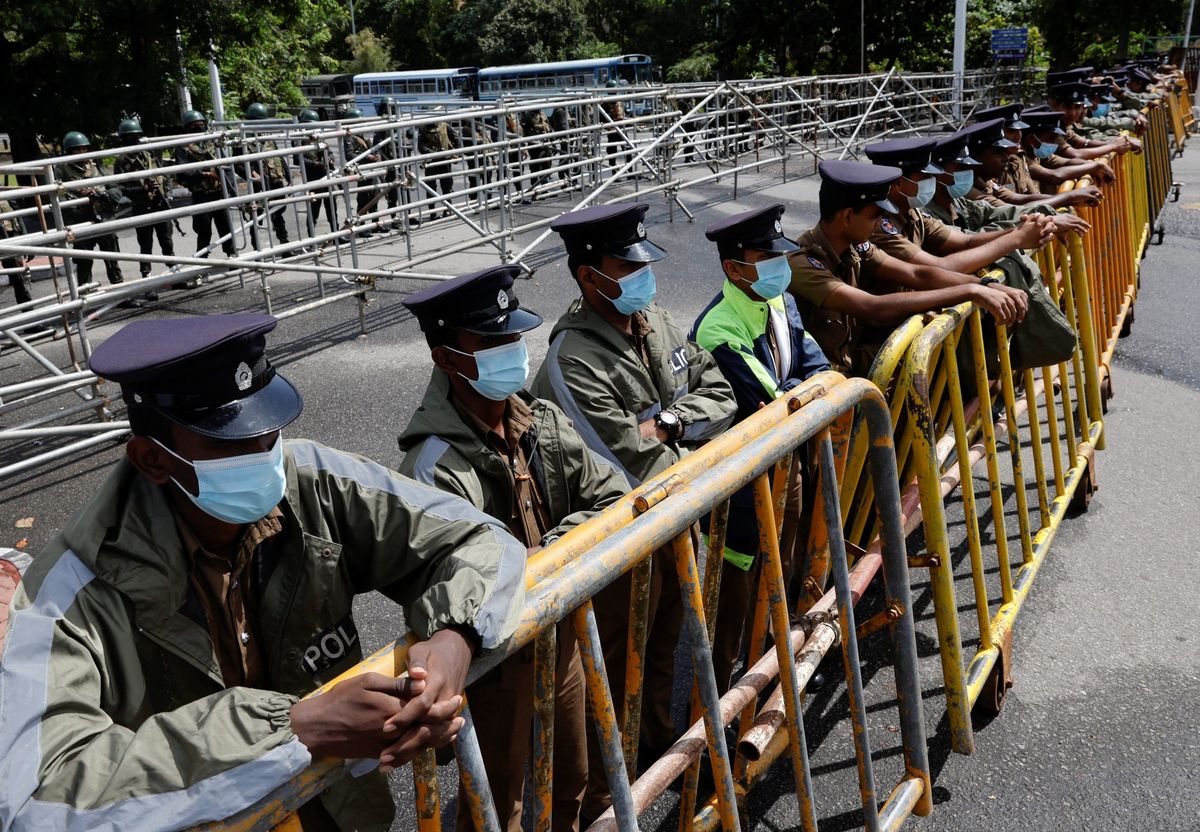What’s next for Sri Lanka?

A few minutes every morning is all you need.
Stay up to date on the world's Headlines and Human Stories. It's fun, it's factual, it's fluff-free.
Protests and demonstrations have been rocking the South Asian island of Sri Lanka for weeks, with the residents blaming the government’s mismanagement for the country’s economic collapse. With two break-ins last week into government buildings, President Gotabaya Rajapaksa fled the country via a military jet to Singapore and submitted his formal resignation to Parliament late last week, which was accepted on Friday. While the full letter hasn’t been made public, it’s reported that Rajapaksa wrote, “It is my personal belief that I took all possible steps to address this crisis."
Several things to note now include:
- The IMF had a press briefing over the weekend, during which the IMF communications head said that, with the unrest in Sri Lanka, loan program discussions had been disrupted. But once things have stabilized, discussions can restart.
- Right now, Rajapaksa handed his position to Prime Minister Wickremesinghe, who’s also largely unpopular, with protest slogans going from “Gota Go Home," (short for Gotabaya) to “Ranil Go Home."
- Wickremesinghe will stay acting president until Parliament votes in a new country leader on Wednesday. But, many are speculating that he might also throw his hat into the ring.
- According to the energy minister, the country will receive three fuel shipments by Tuesday, the first shipments to reach the country in about three weeks. All payments have been completed, but it’s uncertain whether the country will have enough foreign currency for more shipments by the end of this month.
Key comments:
“We hope for a resolution of the current situation that would allow for our resumption of a dialogue on an IMF-supported program. You may recall that in June, less than a month ago, things are moving so fast, but less than a month ago there was an IMF staff team in Colombo. And we did have discussions, actually, constructive discussions with the authorities on a set of economic policies and reforms that could be supported by, potentially by an IMF program. We don’t have a program with Sri Lanka right now. But we were discussing what could be a program," said Gerry Rice, the communications director at the IMF.
“It is my personal belief that I took all possible steps to address this crisis, including inviting parliamentarians to form an all-party or unity government," wrote Rajapaksa in a letter to Parliament.




Comments ()